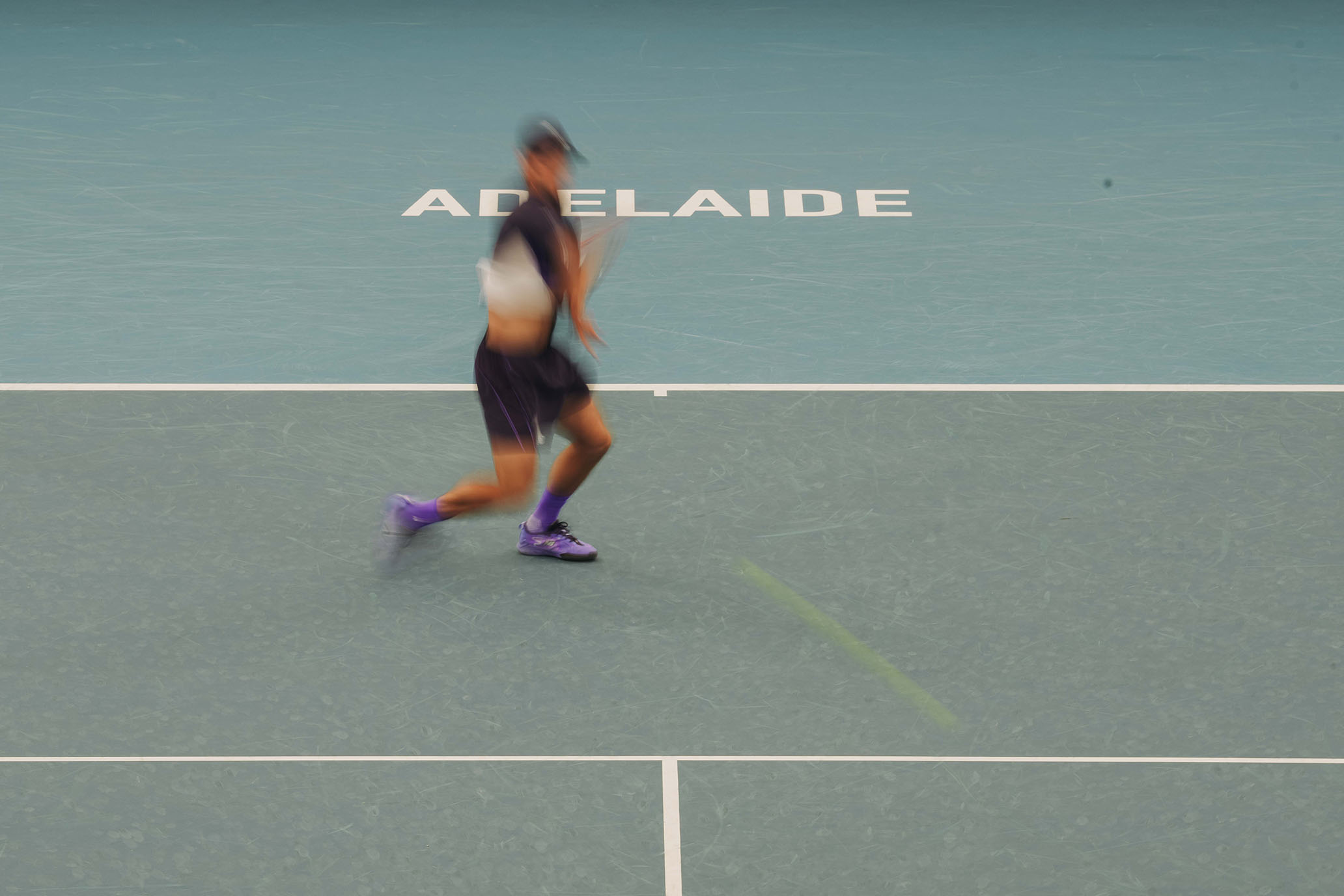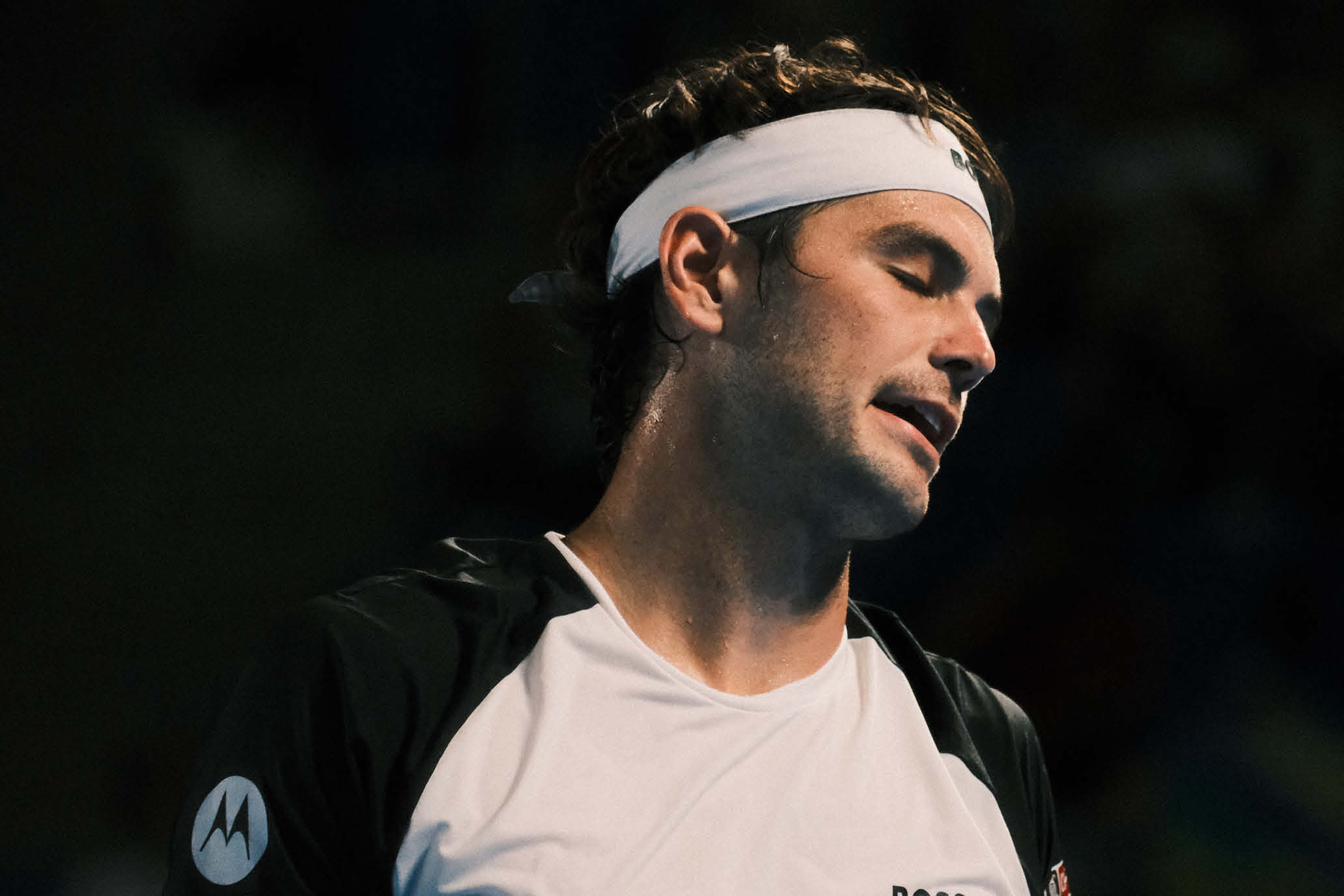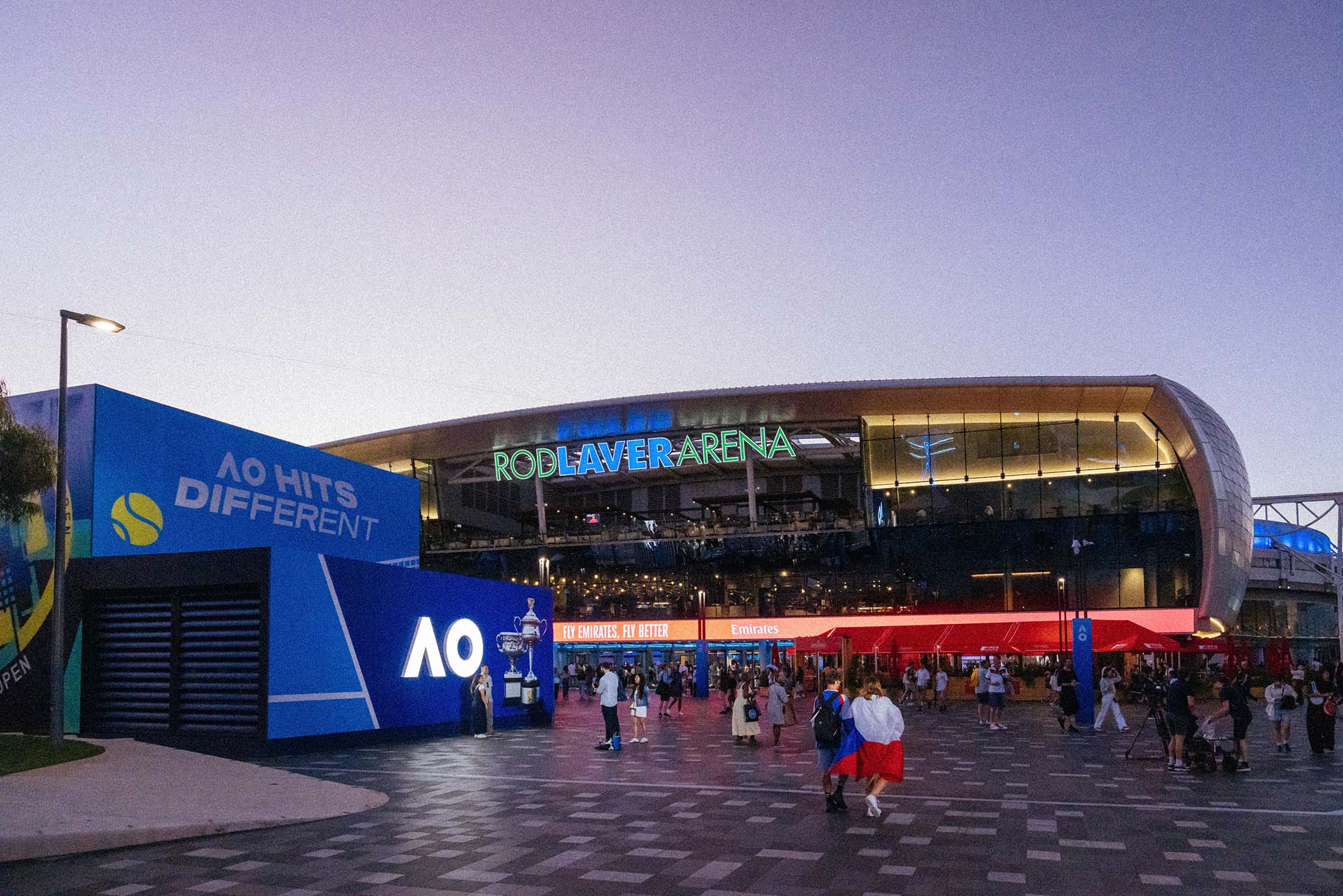Nothing Special
Nothing Special
Joao Lucas Reis da Silva talks coming out and moving up.
Joao Lucas Reis da Silva talks coming out and moving up.
By Sebastián FestApril 25, 2025
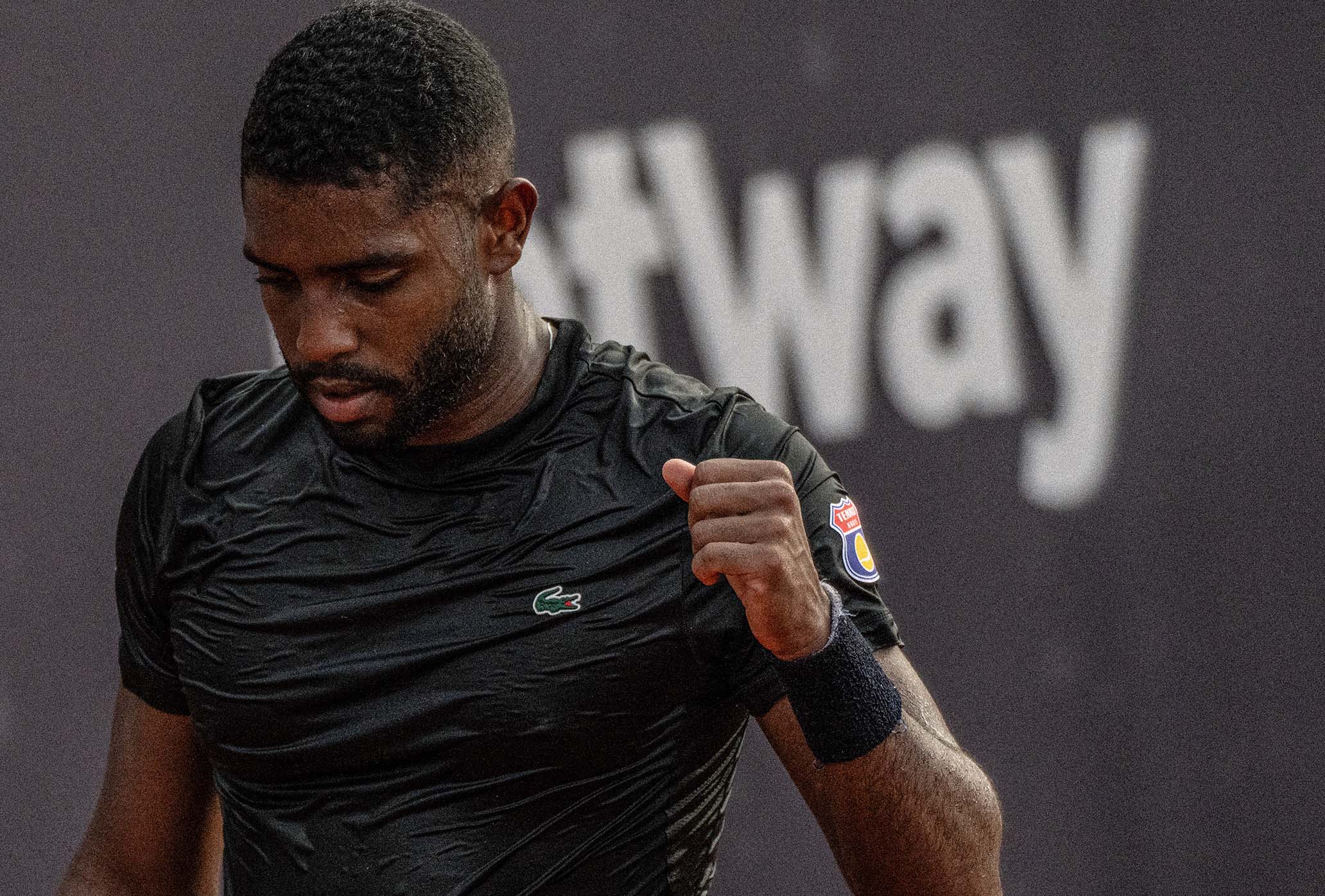
Joao Lucas Reis da Silva the Rio Open in 2024. // Getty
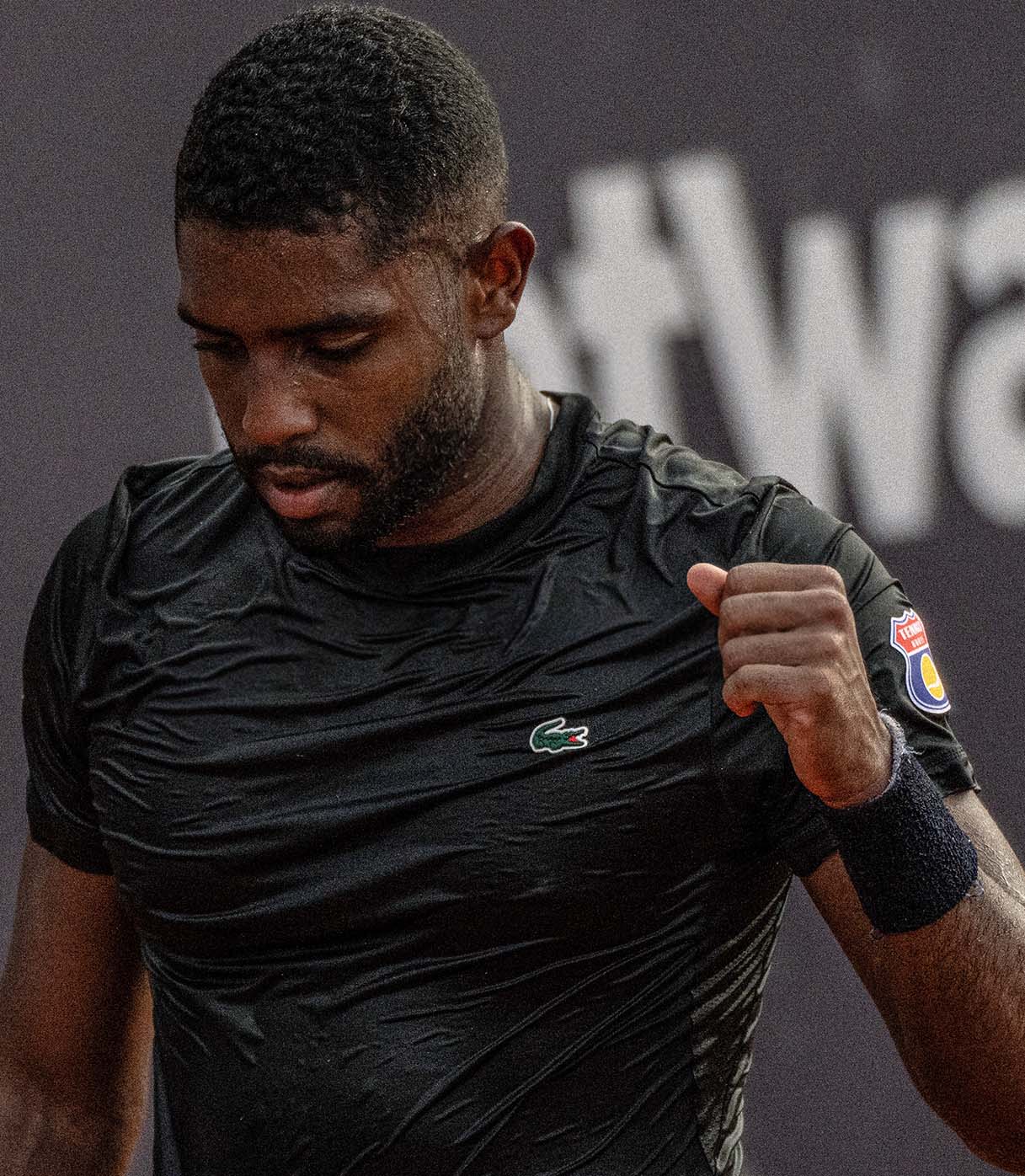
Joao Lucas Reis da Silva the Rio Open in 2024. // Getty
This article was produced by CLAY and has been published collaboratively. It appears on their site as well.
RIO DE JANEIRO—Joao Lucas Reis da Silva, the Brazilian who at the end of 2024 became the first player on the ATP Tour to come out as gay, is clear about one thing: It is very unlikely that he is the only one.
“I don’t know about anyone else, but I think it’s unlikely that I’m the only gay player on the tour,” said Reis during an interview with CLAY in Rio de Janeiro.
Reis, a smiling young man who is looking for a place in the tennis elite—his current ranking is 325—was 2 years old when he sat on the bed between his father and mother, took out his pacifier, and stammered “Guga” while pointing to the television.
Twenty-two years later, he again turned heads when he simply uploaded a photo with his boyfriend on Instagram.
“Happy anniversary, happy life, I love you so much,” he wrote on the social network in December, accompanying a photo in which he was seen with his partner, actor Gui Sampaio Ricardo.
Reis da Silva, who reached No. 204 in the ATP rankings at the end of 2023, has been climbing back after an injury derailed him at the end of 2024.
Men’s professional tennis does not have a history like Reis da Silva’s. Players like the American Taylor Fritz told CLAY at the time that an openly gay player would be well received by his colleagues, while the Peruvian Juan Pablo Varillas posited a different theory: “Maybe there are gay tennis players, but they are afraid. This is a macho sport.” (This is in stark contrast to the WTA, where there have been many openly gay players.)
In an in-depth and relaxed conversation on a humid night in Rio de Janeiro, on the sidelines of the Rio Open played in February, Reis da Silva explained that it was not and is not his intention to become a role model.
“I see that many people look at me and tell me they are proud, and that’s very good. But it’s not something I’ve sought,” said the Brazilian, who, between sentences, looked up to find himself with an unrivaled postcard view of Rio: Christ the Redeemer embracing everyone from the top of Corcovado hill.
What are your goals on court this year?
This year I want to play in the Grand Slam tournaments. Last year I came close to doing it. I almost got into the main draw at Roland-Garros, but I got injured and didn’t play for a while. I feel that my level is there, although I still have to improve some important things.
You don’t earn much money in your current ranking position. How do you finance your career? How do you manage to keep traveling and playing?
I have help from people who believe in me. And I have the support of my city, Recife, and my state, Pernambuco. I can travel with peace of mind until October this year. I hope to play in the US Open qualifiers this year and go to the Australian Open in 2026.
At what age did you start playing tennis?
At the age of 4, very young. The whole family plays. My dad, my mum… My brother played too, he played in junior tournaments in Brazil, but he stopped at an early age, at 15 or 16. I wanted to do everything my older brother did, he’s six years older than me.
As a child, who were your tennis idols?
My first idol was Tsonga. If I saw him on the TV I would drop everything to watch him. I was 8 or 9 years old and they used to call me Tsonguinha [little Tsonga]. And Rafa [Nadal] and Guga [Kuerten] were my other two idols.
You weren’t born when Kuerten won the 1997 Roland-Garros…
My mum always tells a story. I was 2 years old and my parents were in bed watching a Guga match on television. I got into bed between them, took out my pacifier, and said, “Guga.”
You posted that photo in December congratulating your boyfriend on his birthday. And you said at one point that the reactions surprised you. Why?
They surprised me very pleasantly, because the reactions were much better than I expected. I already had the support of my family, my friends, my coaches…. But there was a part of me that was a little worried. When I saw that everyone was sending me messages saying “Good for you!” and things like that, I felt really good. It was a very motivating feeling.
You were worried once you’d posted the photo, but before posting it you did it happily and almost unconsciously, didn’t you?
Yes, when I did it, I did it almost unconsciously, just because it was his birthday. And when I saw that the photo had repercussions in Europe, all over the world, I got a bit worried. And then I sat down and started to think. I told myself no, what I had done was right, that I didn’t have to hide anything from anyone else, that I had already lived that way for too long, trying to make sure that nobody knew anything. When I saw that the reactions were very good, I calmed down.
What was the most pleasant reaction, or the one that surprised you the most?
Billie Jean King wrote to me, a lot of people that I can’t remember now, a lot of likes. And a lot of people around me too, people I already knew I could count on, but who wrote me a lot of nice and kind things. And a lot of people I don’t know, but who told me they admired me. That was the biggest motivation.
Did you receive any messages from the ATP or the International Tennis Federation (ITF) authorities?
No, no, not from them.
Do you think that with that photo you uploaded in December, you can help other gay players feel more secure, more relaxed, more confident about uploading a photo like that themselves?
If that happens it would be great. I don’t know if I’m the person who should be setting an example. My life hasn’t changed that much. I have to wake up in the morning and practice at nine. Not much has changed for me. I have to do the same thing. But I see that a lot of people look at me and tell me they are proud, and that’s very good, but it’s not something I’ve sought.
Don’t you want to be an icon or a role model?
No, because I have a lot of things to worry about with my tennis and with being a better player and a better person. But, well, if people feel represented in me, that’s a very good thing. But it’s not something I want, it’s not my goal.
You said in statements to the Brazilian press that in the years when you were telling your friends that you were gay, the homophobic jokes and sexist comments in the locker rooms or on nights out began to disappear.
Yes, and I think that can happen in society as a whole, not just with my friends. It was a sudden change, things I heard that I never heard again. They might talk among themselves when I’m not there, but when I am there, the atmosphere is one of total respect. It was one of the best things I’ve ever felt. A long time ago I was someone who didn’t want to talk to anyone about it, and when I started talking, when I felt calmer about myself and started talking to my friends, to everyone, and I saw that the reaction was one of protection, of support, I felt calmer. It did me a lot of good.
In what sense?
I started to live much more relaxed, much more relaxed. My relationship with my coaches improved a lot—with my family, too. I could talk about things that I didn’t talk about before. I was 19 when I spoke, it was during the pandemic.
How did your parents take it?
For them it was a shock at first, although my mother told me, “I already knew, I was waiting for you to speak.” She could have told me before! [Laughs]
Mothers know.
Mothers know! The truth is that this had been maturing for a while, and I’m very happy to have come this far.
There is a statistic that indicates that, historically, approximately 10 percent of the population is gay. That 10 percent is not reflected in the ATP Tour. Does that catch your attention?
I don’t think I’m that special, so I can’t be the only one, I can’t be that unique. I don’t know anything about anyone, but I think it’s unlikely that I’m the only gay player on the tour.

PURE, ORIGINAL TENNIS — SIGN UP!
RECOMMENDED
Postcard from Adelaide ’26
ADELAIDE
Taylor Fritz Sees the Game Differently
UNITED CUP
The Price is Tight
AUSTRALIAN OPEN
